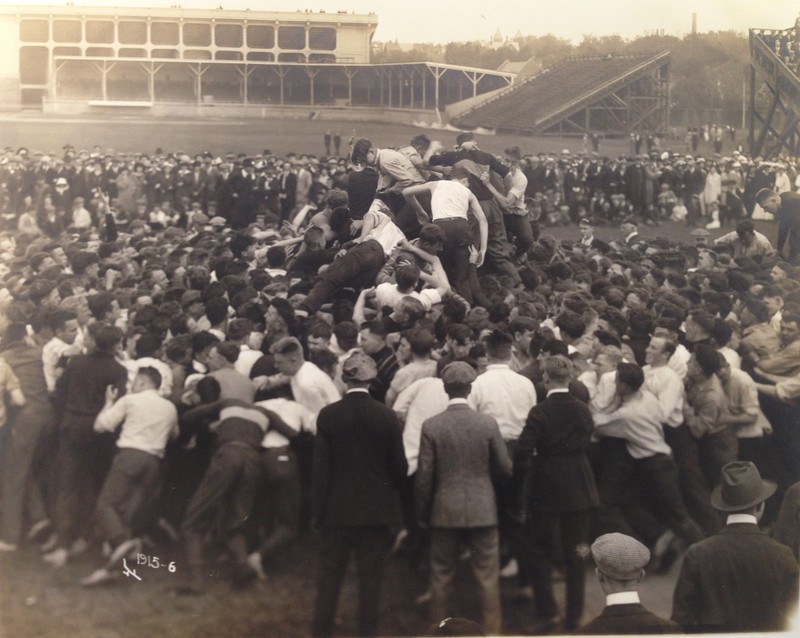The Many Experiences Within A City's "War Experience" (By Erin McGlashen)
My favorite part about the study of history is the knowledge that there were people just like you even a whole century ago. Most of them go unremembered: they live relatively quiet lives, are well loved by friends or family, and then fade peacefully from public consciousness. Studying history gives those little quiet lives another flicker. Even though most of my work was done with larger organizations, or town-wide initiatives, I’ve spent a lot of time looking through the Michigan Daily throughout the course of this project. Each Daily article I’ve had the opportunity to read was written by an author who was documenting their experiences and their personal perception of the world. Now, 100 years later, someone can pick it up and marvel at the lives these students must have lead.
Often times, when studying history, we forget how difficult it actually is to imagine what exactly these students were experiencing. These were students, after all, who likely had days when all they did was lay around in their dorm room and wish they didn’t have a paper due the next day. Some were young, some were old, many were stressed, and possibly tired of meatless and wheat-less and reduced-sugar days. These students were forced to confront the realities of the SATC and ROTC drilling on campus every day, watching military training groups digging up trenches in the Arb, and parading to train stations. Fathers, brothers, best friends, lovers, sisters, aunts, daughters; so many different types of people had lives overturned by their war experiences.
For example, as modern historians, we might forget that chemical warfare was newly introduced during World War I, yet was so traumatically damaging that its use in future conflicts was prohibited by the Geneva treaty in 1925. Somehow, the hellscape that is a battlefield had gotten worse, and students and their families- who previously only had to concern themselves with grades, dances, and exploration were being pulled into service. Can you imagine being drafted into that kind of experience? I certainly can not. One must also remember that soldiering was not the only experience of the war. There were many Americans who still had family in Germany during the war, and objected to the war fervor because they didn’t want to fight family. There were Americans who had troubles in their lives, and might have grown irritated by the zealous patriots who continuously asked for money and service when perhaps they were struggling to keep their own family healthy and housed. There were farmers who lost most of their labor force and spent the war period training young men and women in their trade. There were suffragettes who were constantly pushing for women’s rights in a time when many people thought their activism was unpatriotic and detracting from the war effort. There were young, female Michigan students who were granted the opportunity to join the Michigan Opera for the first time in school history, or joined the newspapers to take the place of their male cohort who had left to join the war effort. There were young school children who comprehended very little about the locations in which the war was being fought, but knew that some part of their family was far away and fighting. There were socialists in a time before socialism had gained a bad name who objected to the way the country was being run and acted against perceived injustices despite personal detriment in the name of their beliefs.
So many types of lives were lived simultaneously, and unfortunately this project could only extrapolate a small selection of their experiences. But the greatest part of working on this project, in my humble opinion, was having the opportunity to spend the summer learning about what these amazingly ordinary people went through, and how the crucible of war affected an entire community in many different ways. And for all that their circumstances were so very different from our own, they were still just ordinarily extraordinary people who lived in Ann Arbor, and that is a wonderful thing.

